Is the 2021 Hyundai Santa Fe Hybrid a Good SUV? 5 Pros and 5 Cons

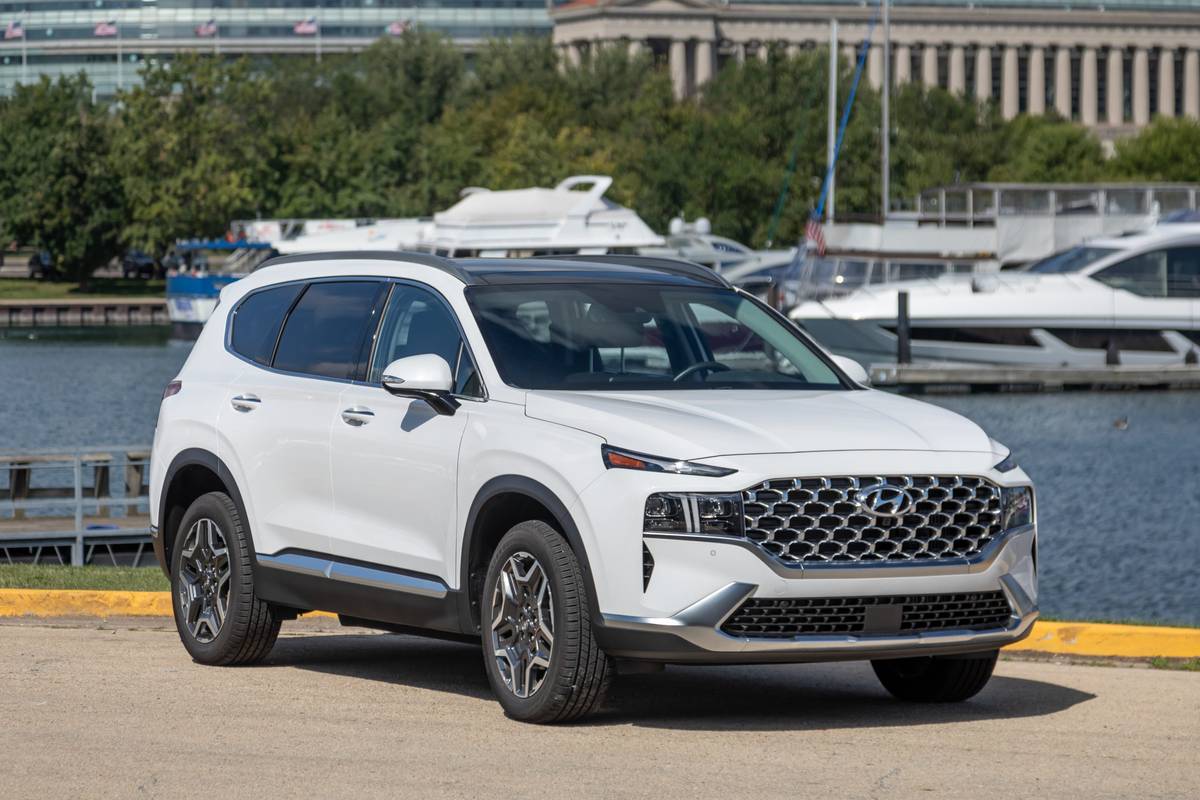
A big selling point of the updated-for-2021 Hyundai Santa Fe was its new 281-horsepower, turbocharged 2.5-liter engine and eight-speed dual-clutch automatic transmission, which directly addressed our dissatisfaction with the outgoing model’s anemic 2.0-liter setup. The 2021 version further improves powertrain offerings by adding a hybrid model to the mid-size SUV’s lineup. Does less (fuel consumption) translate to more for would-be buyers? More or less.
Related: 2021 Hyundai Santa Fe Hybrid Review: Efficiency Over Everything
There’s a whole lot to appreciate about the 2021 Hyundai Santa Fe Hybrid — with impressive gas mileage being just one obvious example — but by no means is it perfect. For the full rundown, be sure to check out Cars.com reviewer Brian Normile’s comprehensive critique via the related link above. But for a rapid-fire roundup of the pros and cons, keep reading.
Here are five things we like, and five things we don’t, about the 2021 Hyundai Santa Fe Hybrid:
Things We Like
1. Good Gas Mileage
The Santa Fe Hybrid’s EPA-rated fuel economy ranges from 33/30/32 mpg city/highway/combined up to 36/31/34 mpg depending on trim and equipment. At its best, it compares favorably with smaller, much lighter competitors. At its worst, it compares favorably with its own gas-only version, rated at 25/28/26 mpg.
2. Eager Acceleration
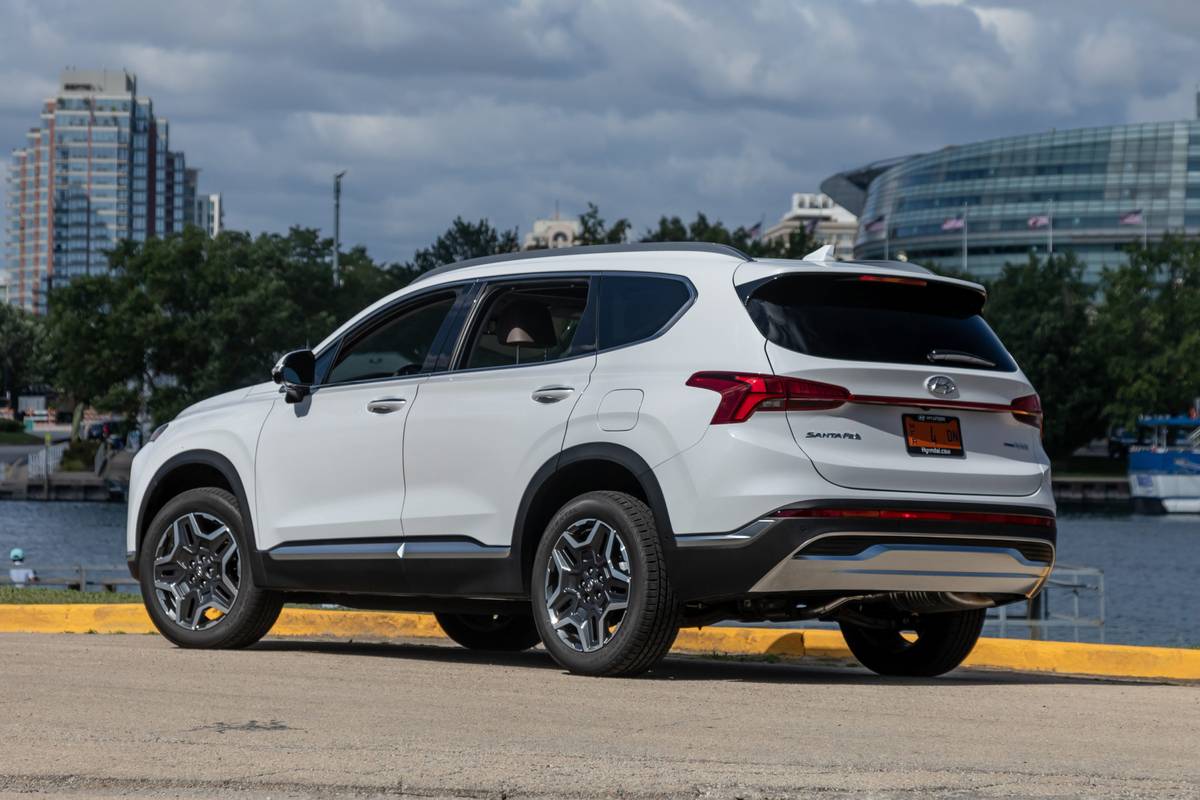
Pedal power is modest but serviceable, with its 1.6-liter turbocharged four-cylinder engine, 59-hp electric motor and 1.49-kilowatt-hour battery pack combining for a total of 226 hp channeled through its six-speed automatic transmission. You’re not going to win many suburban stop-light sprints, but acceleration is peppy enough to let the car behind you know you have someplace to be, too.
3. Make It Stop
Uncommunicative braking in hybrids isn’t uncommon, and while the Santa Fe Hybrid’s brake feel may be slightly vague, the driver won’t be left wondering whether it actually intends to stop. In fact, the Hybrid’s regenerative brakes don’t feel all that different from the gas-only Santa Fe’s regular brakes.
4. All-Wheel Drive for All
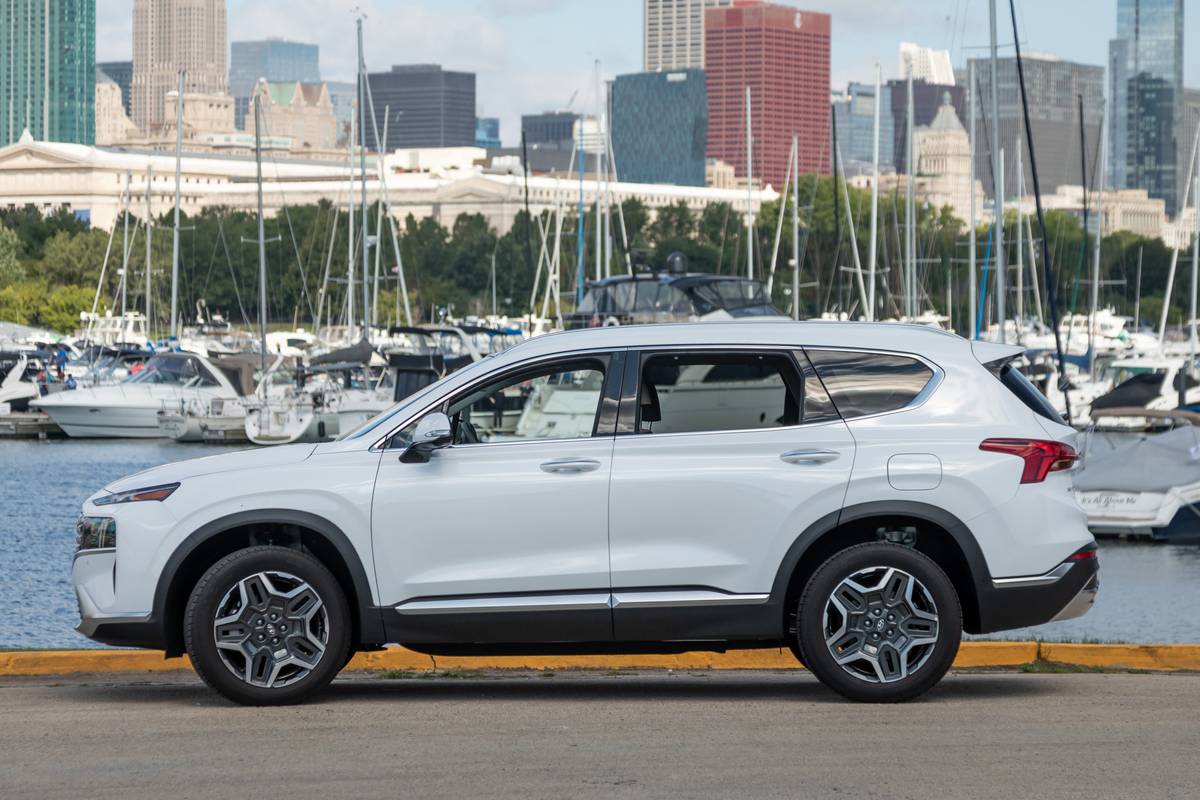
One of Cars.com’s house rules for considering a vehicle to be an SUV is available all-wheel drive. The Santa Fe Hybrid comes standard with AWD, so we could argue it’s technically more of an SUV than the standard-front-wheel-drive gas version.
5. Palatable Price
The Santa Fe Hybrid we tested had a sticker price of $41,640, including a destination charge. That’s a bit cheaper than a comparable gas-only Santa Fe in second-highest Limited trim with AWD, as well as the range-topping Calligraphy model we previously tested for our review of the regular Santa Fe.
More From Cars.com:
- Shopping for a 2021 Hyundai Santa Fe Hybrid? Research One, Here
- Find a 2021 Hyundai Santa Fe Hybrid for Sale Near You, Now
- Hyundai Santa Fe: Which Should You Buy, 2021 or 2022?
- Is the 2021 Hyundai Santa Fe a Good Car? 5 Pros and 4 Cons
- Wireless Apple CarPlay and Android Auto: Where Are They Now?
Things We Don’t
1. Cabin Qualms
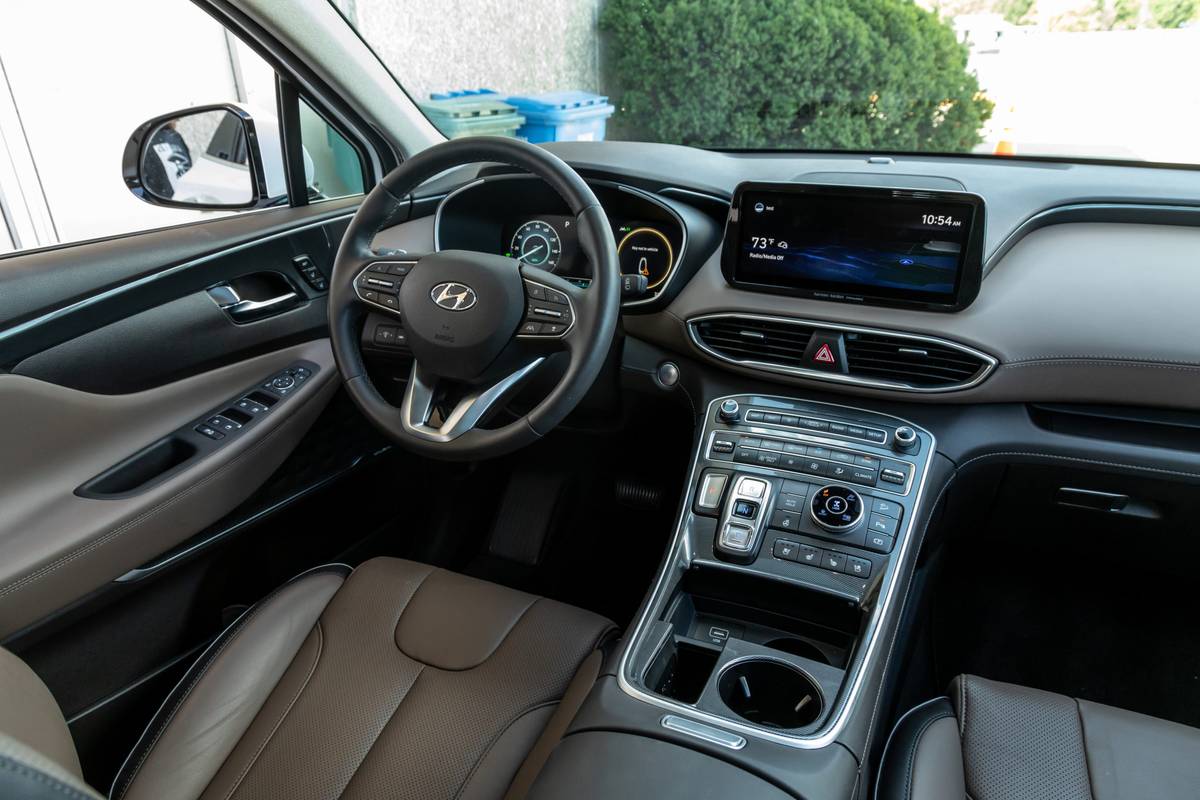
The Hybrid’s highest trim, the Limited, is one level below the gas-only model’s swankiest, the Calligraphy. That means no faux-suede flourishes nor Nappa leather for hybrid buyers, which only serves to accentuate the cabin’s unfortunate abundance of hard-plastic surfaces. Meanwhile, the extra-wide center console may box in bigger drivers.
2. Exit Pulling
The Hybrid loses some 43% of its towing capacity, which drops to 2,000 pounds versus the regular Santa Fe’s 3,500 pounds. Fair trade for efficiency? Sure, but that doesn’t mean we have to like it.
3. What’re You in the Mode For?
You probably won’t miss the absent electric-only mode, but you’ll be hard-pressed to make a meaningful distinction between the driving modes it does offer, including Eco and Sport.
4. Wireless Weirdness
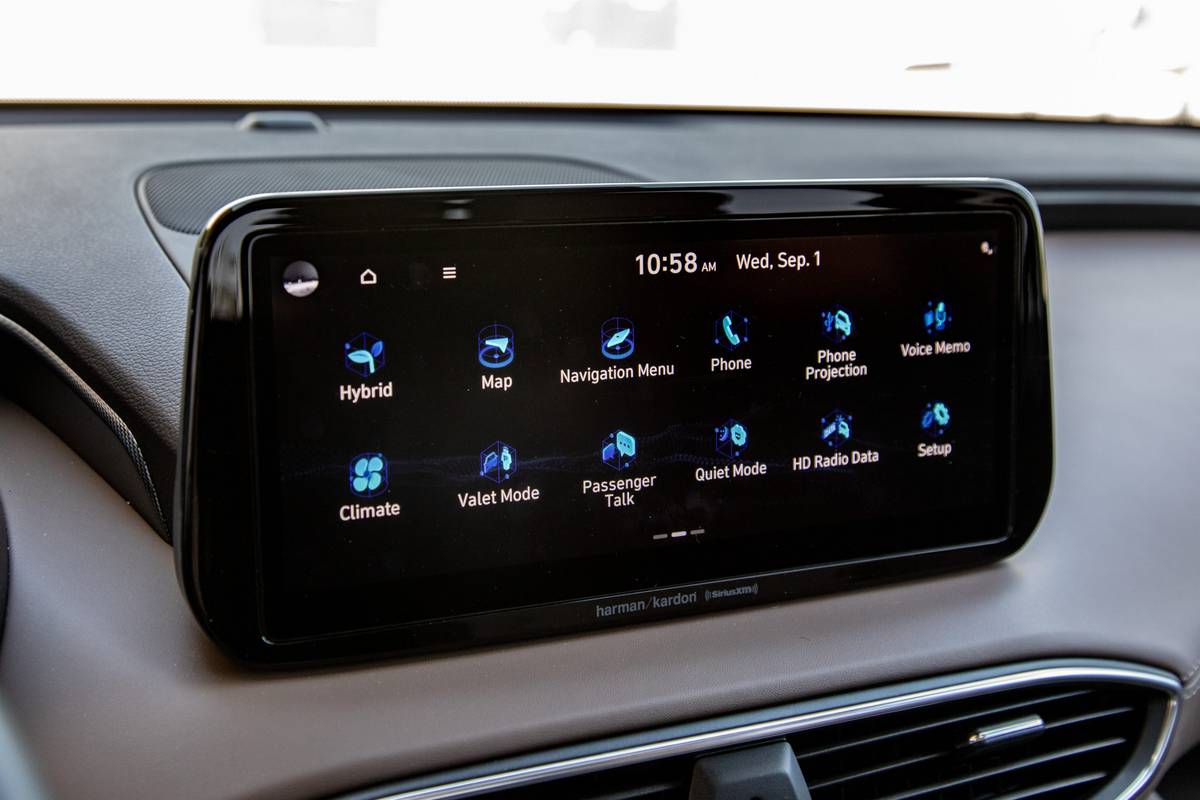
Like the regular Santa Fe, the Hybrid offers a slick-looking new 10.25-inch touchscreen — and, like the regular Santa Fe, you can only get wireless Apple CarPlay and Android Auto with the standard 8-inch touchscreen. Guess what? It makes about as much sense here. Oh, and by the way, models with wireless smartphone connectivity don’t have wireless charging, but those without wireless connectivity do. And … scene.
5. No Wayback
Without even an optional third row of seats, the Santa Fe Hybrid’s (and regular Santa Fe’s) fewer rows mean fewer seating options. That lack of versatility is a legitimate concern for even fuel-conscious families. Those looking for a third row will need to step up into the Hyundai Palisade.
Cars.com’s Editorial department is your source for automotive news and reviews. In line with Cars.com’s long-standing ethics policy, editors and reviewers don’t accept gifts or free trips from automakers. The Editorial department is independent of Cars.com’s advertising, sales and sponsored content departments.

Former Assistant Managing Editor-News Matt Schmitz is a veteran Chicago journalist indulging his curiosity for all things auto while helping to inform car shoppers.
Featured stories



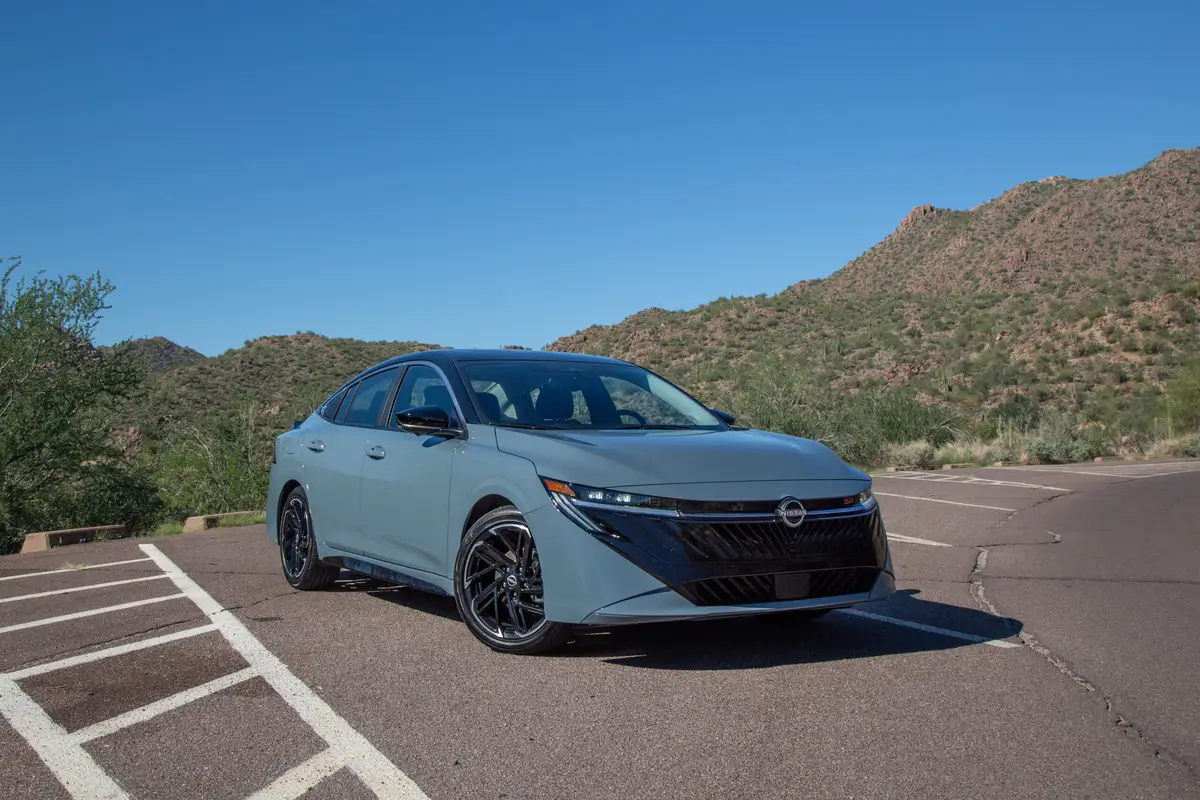
2026 Nissan Sentra Review: Long Live the Sedan

